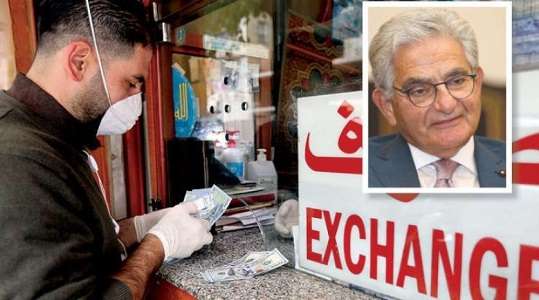The head of the Association of Banks in Lebanon, Salim Sfeir, stressed that rebuilding trust constitutes the mandatory crossing point for saving Lebanon, and that it should be the most prominent title for any comprehensive treatment plan that guarantees the recovery of the economy from its severe crisis, and addressing financial and monetary gaps that threaten the consequences of more socially and living pain.
He pointed out that this is a priority task for statesmen to adopt, instead of restricting the trends in restructuring strategic institutions such as the central bank and the banking sector.
Speaking to Asharq Al-Awsat, Sfeir stressed that "as long as the nucleus of the crisis lies in public finances, attention should be paid and appropriate proposals formulated to address the root of the problem, and then deal with the gaps and repercussions it has produced on the economy and its productive sectors. When structural reform of public finances is done and the balance account is calculated between income and spending, it would possible to seek an initial surplus that covers the installments of dues of the state, and the factors of intimidation from the public debt management gradually disappear, and the state can gradually pay its liabilities to its creditors and the balance automatically returns to the balance sheets of the central bank and the banking system."
Sfeir admits that resorting to the International Monetary Fund, which allows any country to maximize its borrowing interest in exceptional circumstances, is inevitable, provided that at a later stage, the revitalization and acceleration of the Cedar Conference’s commitments amounting to about $11.6 billion will be in the form of soft loans for the public and private sectors and for infrastructure projects.
Source (Al-Sharq Al-Awsat Newspaper, Edited)

